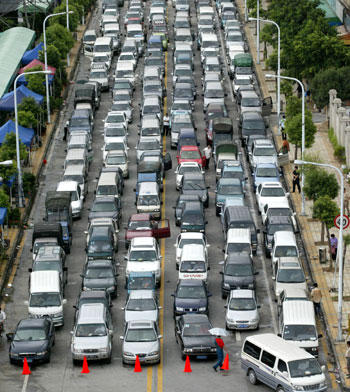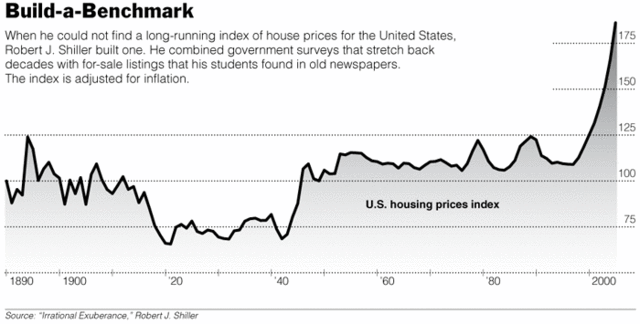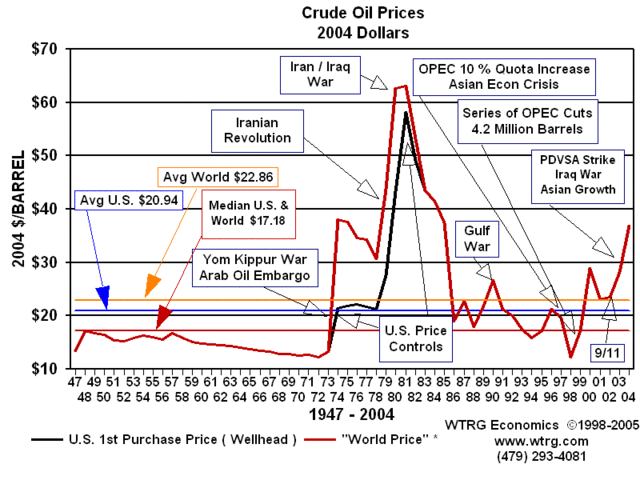Here is my update on Iraq: We are still there, and will be there for a while. And we are still spending nearly every available financial and human resource, not to mention all of our national attention and available goodwill, on the effort to make Iraq a prosperous and successful free and independent nation, to the exclusion of being able to bring much change about anywhere else in the world.
I can't tell you whether the effort in Iraq is going well or poorly. Certainly if I pay attention to the major media alone I would assume it's a disaster, but we all know the media has a bias toward negativity that trumps any political biases it might have (after all, your local news station learned long ago that "your kids are happy and healthy, story at 11" is not a very good way to tease the evening news). Being familiar with alternate sources on the Internet, I know that there are successes as well as failures on the ground. In fact, you can even sort of deduce the successes from the major media coverage. When the NY Times stops writing about blackouts in Iraq, you know that the electrical system is fixed. When the WaPo stops writing stories about shortfalls in re-enlistment rates, you can infer that the rates are back up.
But to me, all this back and forth over success and failure in Iraq is only peripheral to my main problem with the war. Let's for the sake of argument posit that things are going swimmingly, and we are able to start removing assets and support from Iraq next year. That will mean that for four or five years, the entire attention and resources of the only country in the world that is able to substantially influence the behavior of other countries will be focused on just one country.
During the Iraq war and occupation, we have not had the "bandwidth", either in attention or moral authority or resources, to help stave off Sudanese genocide, to steer Zimbabwe off its destructive path, to influence the course of events in Iran or North Korea, to change the behavior of terrorist sponsors like Saudi Arabia, or even to head off Russia's apparent slide back toward totalitarianism.
Now, one could easily argue that its not our job to fix these things. And I go through phases of agreeing with this. However, our invasion of Iraq is predicated on the assumption that it should be our foreign policy to try to fix the worst of these problems. And if it is, does it really make sense to invest everything we have and more on one country for four or five years (or more?) From the first days of the war, I have called this my "cleaning of the Augean stables argument". There are just too many messes in the world to head them all off by military invasion. Afghanistan probably justified such a military effort, given its direct connections to 9/11, but I am still confused as to why Iraq justified this attention more than 20 or so other nations I could name. Afghanistan convinced the world that the US was ready to use the military if it had to, and helped to reverse the perception of weakness left by Carter's response to the Iranian hostage takers, Reagan's bailing out of Lebanon, and Clinton's running form Somalia and refusing to respond to the Cole attacks. 9/11, for all its horors, gave us a certain moral authority in the world to try to clean things up. This credibility and authority could have given new life to non-military efforts, but we chose not to use them.
Now that we are there in Iraq, I tend to be in the stay the course camp. There are too many recent examples, such as those cited above, where bailing out has created a perception of weakness that have encouraged our enemies to more boldness. The situation we are in with the Iraqi people is much like the obligation the police have to a mafia informant that the police have convinced to turn state's evidence with the promise of protection against retribution. If you suddenly throw the guy back out on the street to be killed publicly, its going to be really hard to get anyone else to trust you in the future.
I will confess that there are two things that from time to time cause me to have some doubts about my stance.
The first was the seeming cascade of good news from surrounding countries in the middle east last January, as a successful Iraqi election emboldened opposition forces in a number of countries, including Lebanon, Egypt, and Iran. If the neocons are right, and successful democracy in Iraq leads to a cascade effect in the surrounding nations, then my argument about spending too much time and effort on one country loses some of its power.
The second and perhaps more powerful input that sometimes causes me to rethink my opposition to the Iraq war is the insanity that tends to emerge from others who are anti-war, and with whom I do not want to be associated. Take Cindy Sheehan and her beliefs, since she seems to have been adopted as a spokesperson and mascot by much of the vocal anti-war left. (I promised myself I would never mention Cindy Sheehan in this blog, but if she can meet with the president once and later claim that the president won't meet with her, then I guess I can write about her once and then claim I won't ever mention her).
Ms Sheehan has stated, as have many others in the anti-war movement including Michael Moore, at least five reasons for their being anti-war that drive me nuts:
Insurgents are Freedom Fighters: Sorry, but no. Most of the insurgents are ex-Baathists or Muslim extremists who want to reinstate a fascist state in the mold either of Saddam's more secular version or Iran's more fundamentalist version. The insurgency is the equivalent of what Germany would have been like had the SS followed through on its promise to continue fighting a guerrilla war from the Bavarian Alps. The world is a better place without the Baathists in power, and the insurgents do not have good aims for the Iraqi people. Period.
Its all a Jewish plot: Everything old is new again, and this particular brand of anti-Semitism, seeing Jewish cabals everywhere pulling strings of the government, seems to be back in vogue. However, is there any particular reason Israel would want to shake the tree in Iraq? After all, the last and only time they were attacked by Iraq directly was the last time the US went to war with Saddam. Israel is still surrounded by enemies, with or without Saddam in power in Iraq. In fact, one could argue that what Israel should really want is for Iraq and Iran go back to beating the crap out of each other in war after war.
It was all for oil: How? People always say this, but they can never explain to me the mechanism. If it was to put US companies into ownership positions over Iraqi oil, we did a damn bad job since the Iraqi's seem to still own all their own oil (though we did head off the French from grabbing the oil).
War is never justified: I don't think war was justified in this case, but never? If you make this statement, then it means you have to be willing to live with anything, from genocide to totalitarianism, up to and including in your home country. As long as there are people who only know how to live by force and wish to rule me, war always has to be an option.
Iraqis were better off under fascism when they had security: I am not an Iraqi, so I won't try to make this trade-off for them. However, I would like to point out a huge irony about the folks, mainly on the left, who make this argument. The very same folks who make this argument for the Iraqis have been faced with the same choice themselves over the last few years: Would you rather an increased risk of domestic terrorist attack, or greater security at the cost of reduced freedoms via the Patriot Act, more random searches, profiling, surveillance, etc. etc. Most on the anti-war left have shouted that they will take the extra risk of violent attack in order to retain their individual liberties. I agree with them. The difference is that I don't project exactly the opposite choice onto the Iraqi people.
Update: Professor Bainbridge seems to be in roughly the same boat.


